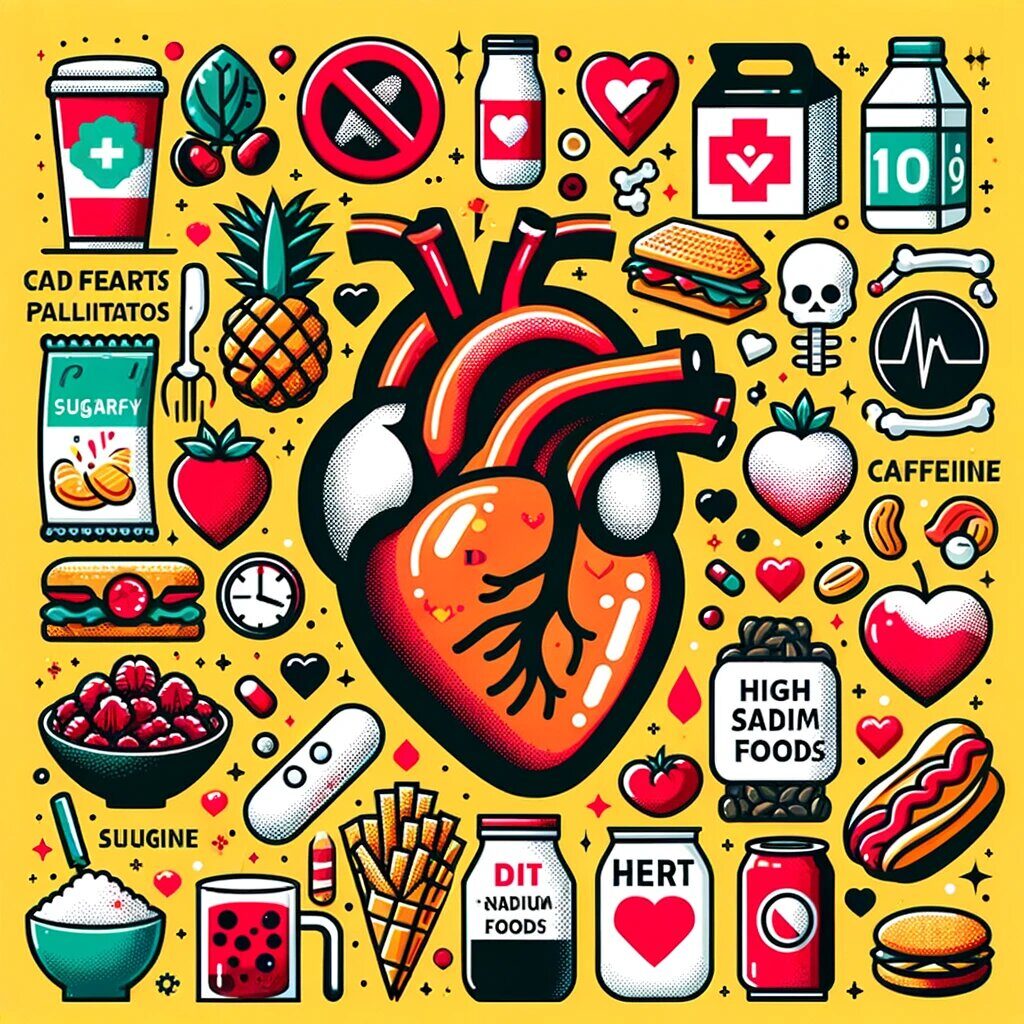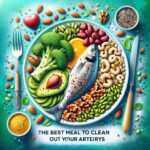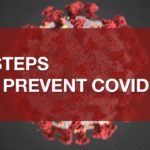
Heart palpitations, a sensation where the heart races or skips beats, can be alarming and uncomfortable for many. Often perceived as a fluttering or a pounding heart, palpitations can occur in the absence of heart disease but may also signal an underlying condition. Factors contributing to this sensation vary widely, from psychological stress to physical illness, and notably, dietary choices play a significant role. The link between what we consume and how our heart behaves is undeniable, with certain foods and substances known to trigger or exacerbate palpitations.
Recognizing the importance of diet in managing heart palpitations is crucial. This article aims to shed light on specific foods and dietary habits that individuals experiencing heart palpitations may want to avoid. By understanding the impact of these foods on our heart’s rhythm, we can make informed choices towards a heart-healthier lifestyle. The guidance provided here is based on scientific research and medical advice, aiming to educate and empower readers to take proactive steps in their health management.
As we progress, we will explore the categories of foods known to potentially trigger heart palpitations, offering insights into why these foods have such effects and providing practical advice on healthier alternatives. Remember, consulting with healthcare professionals for personalized dietary and health advice is always recommended.
Caffeinated Products
Caffeine is a central nervous system stimulant found in a variety of beverages and foods. Its ability to increase alertness is well-documented, but its impact on the heart is a double-edged sword. For individuals sensitive to caffeine or consuming it in large quantities, caffeine can significantly affect heart rate and rhythm, leading to palpitations.
- Explanation of How Caffeine Affects the Heart: Caffeine blocks the action of adenosine, a chemical that normally slows heart rate and dilates blood vessels. This blockade leads to an increase in heart rate and, for some, palpitations. The effect is more pronounced in individuals who metabolize caffeine slowly or consume high doses.
- Examples: The most common sources of caffeine include coffee, tea, energy drinks, and certain soft drinks. A single espresso can contain as much as 100 mg of caffeine, while energy drinks can offer two or three times that amount per serving. The variability in caffeine content across these beverages means that individuals may unknowingly consume more caffeine than they realize, exacerbating heart palpitations.
The advice here is not to eliminate caffeine entirely but to be mindful of its sources and the quantities consumed. For those experiencing heart palpitations, reducing caffeine intake or choosing decaffeinated options may help manage symptoms. Monitoring your body’s response to caffeine and adjusting intake accordingly is key to minimizing heart palpitations without sacrificing your morning ritual or midday boost.
High Sodium Foods
Sodium, an essential mineral for human health, plays a critical role in blood pressure regulation and fluid balance. However, excessive sodium intake is a common problem in many diets, particularly due to processed and fast foods. High sodium levels can lead to increased blood pressure, which in turn can strain the heart and potentially lead to palpitations.
- The Role of Sodium in Blood Pressure and Heart Health: Sodium works by drawing water into the blood vessels, increasing the total volume of blood inside. This increased volume puts more pressure on the blood vessel walls, which the heart must work harder to pump, possibly leading to palpitations as the heart rate increases to manage the higher workload.
- Examples: Processed foods like canned soups, frozen dinners, and processed meats are notoriously high in sodium. Fast food items, such as burgers, fries, and pizza, also contribute significantly to daily sodium intake. Even bread and rolls, which might not taste salty, can be hidden sources of sodium.
For individuals prone to heart palpitations, moderating sodium intake is advisable. This doesn’t just mean putting down the salt shaker; it also involves being vigilant about reading labels and choosing lower-sodium versions of foods. Cooking more meals at home where you can control the amount of sodium added is another effective strategy for reducing overall intake.
Reducing sodium in the diet can help manage blood pressure and decrease the risk of heart palpitations. It’s also beneficial for overall heart health, as high blood pressure is a risk factor for many heart conditions.
Tyramine-rich Foods
Tyramine is a naturally occurring compound that is formed from the breakdown of the amino acid tyrosine. It is found in various foods, especially those that are aged, fermented, or preserved. While not harmful to most people, tyramine can cause significant issues for those sensitive to its effects, including triggering heart palpitations.
- Explanation of Tyramine and Its Effects on the Cardiovascular System: Tyramine can cause the release of norepinephrine, a neurotransmitter that increases blood pressure and heart rate. In susceptible individuals, this can lead to noticeable heart palpitations, especially if large amounts of tyramine-rich foods are consumed.
- Examples: Foods high in tyramine include aged cheeses (such as blue cheese, cheddar, and parmesan), cured meats (like salami, pepperoni, and prosciutto), fermented products (such as soy sauce, sauerkraut, and kimchi), and certain legumes. Even some beverages, like tap beers and red wines, can have high levels of tyramine.
For those who experience heart palpitations, it may be beneficial to limit or avoid high-tyramine foods. This does not mean you have to cut these foods out entirely but being mindful of the quantities consumed and noticing how your body reacts can help manage symptoms. Identifying and avoiding personal triggers is key to reducing episodes of palpitations.
The variability in individual sensitivity to tyramine makes it important to observe your own reactions and adjust your diet accordingly. Consulting with a healthcare professional can provide personalized advice and dietary guidelines to help manage heart palpitations effectively.
With a comprehensive understanding of how different foods and substances can affect heart rhythm, individuals can make informed dietary choices to support their heart health and reduce the occurrence of palpitations.
The Best Meal To Clean Out Your Arteries
Conclusion
Heart palpitations can be a concerning and uncomfortable experience, often leading individuals to seek ways to manage or prevent them. Through this article, we’ve explored various dietary factors that can contribute to palpitations, including the consumption of caffeinated products, high sodium foods, sugar-rich foods, alcohol, tyramine-rich foods, and certain dietary supplements. Understanding the impact of these foods and substances on your heart’s rhythm is crucial for anyone looking to minimize their occurrences.
It’s important to remember that while diet plays a significant role in managing heart palpitations, it’s just one piece of the puzzle. Lifestyle choices, overall health, and medical conditions also significantly affect heart rhythm. Therefore, alongside dietary adjustments, maintaining a healthy lifestyle and consulting with healthcare professionals for personalized advice are essential steps in managing heart palpitations.
Ultimately, the goal is not to fear food but to become more mindful of how certain foods affect your body. Moderation, balance, and awareness are key principles. By paying attention to what we eat and how it makes us feel, we can take proactive steps towards not only reducing heart palpitations but also improving our overall heart health.
Remember, everyone’s body reacts differently to various foods and substances. What triggers palpitations in one person may not affect another. Thus, it’s beneficial to keep a food diary or engage in an elimination diet, under the guidance of a healthcare provider, to identify your specific triggers.
In conclusion, managing heart palpitations through dietary choices is a practical approach that can lead to significant improvements in quality of life. By understanding and avoiding potential triggers, individuals can work towards a healthier heart and a more comfortable daily experience.




